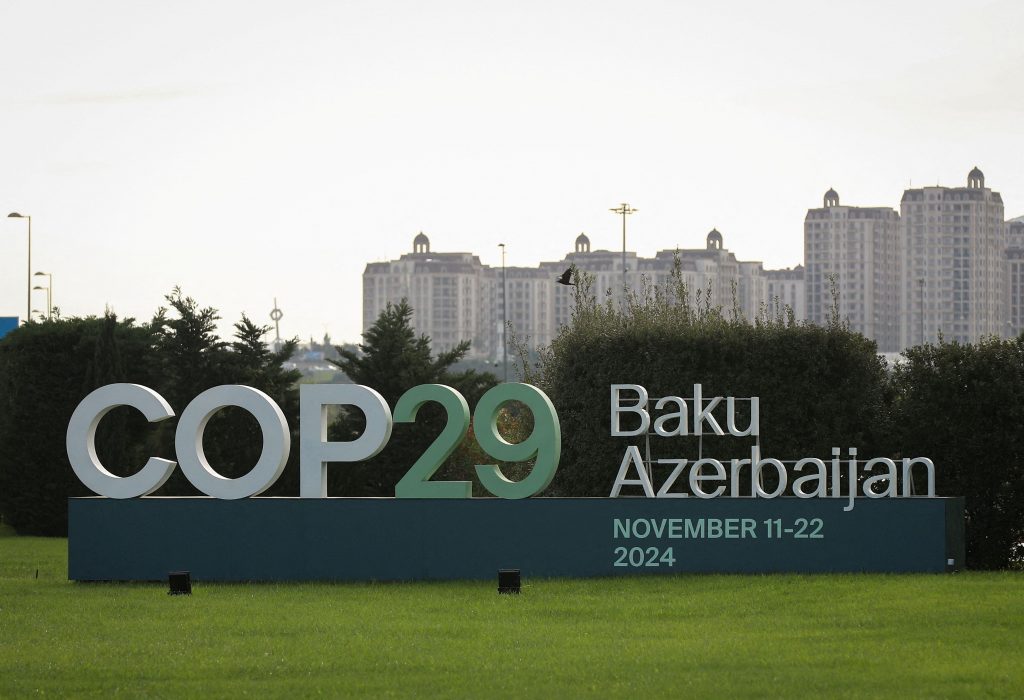The European Union’s Copernicus Climate Change Service has declared that 2024 is almost certain to become the hottest year on record.
It is “almost certain” because global temperatures have already hit such heights throughout the year, that they would have to hover around zero for the rest of the year for the average to remain below the record.
The data release from Copernicus, just before the COP29 climate summit in Azerbaijan, underscores the urgency for international efforts to limit global warming and intensify climate action.

FILE PHOTO: A view shows a sign of the COP29 United Nations Climate Change Conference with a backdrop of the cityscape in Baku, Azerbaijan October 31, 2024. REUTERS/Aziz Karimov/File Photo
The warming is compounded by the recent El Niño event– a cycle of warm sea-surface temperatures in the eastern Pacific which impacts temperatures and rainfall globally. However the main cause for the rise in temperatures is climate change caused by fossil fuel use and greenhouse gas emissions.
“The fundamental, underpinning cause of this year’s record is climate change,” Copernicus Climate Change Service Director, Carlo Buontempo, told Reuters.
2023 was also the warmest on record. In 2022, NASA warned that the nine years prior had been the warmest years since modern record keeping began in 1880.
The rise in temperatures is already leading to more intense storms, heatwaves, fires and extreme rainfall from Greece to Spain, from India to Japan.
Additionally, Copernicus scientists reported that this year the planet will likely hit global temperatures a full 1.5°C above pre-industrial levels. This grim milestone, attributed again to human-driven climate change, indicates a critical threshold that scientists had aimed to avoid as part of the 2015 Paris Agreement.
With this week’s election of Donald Trump, who has promised to withdraw the U.S. from the Paris Agreement again, these goals could move even further behind in the rearview mirror.
COP29 could be one key moment for governments to demonstrate their commitment to addressing the climate crisis, and try to reverse the dangerous warming trends. But the alarm bells are already ringing.



